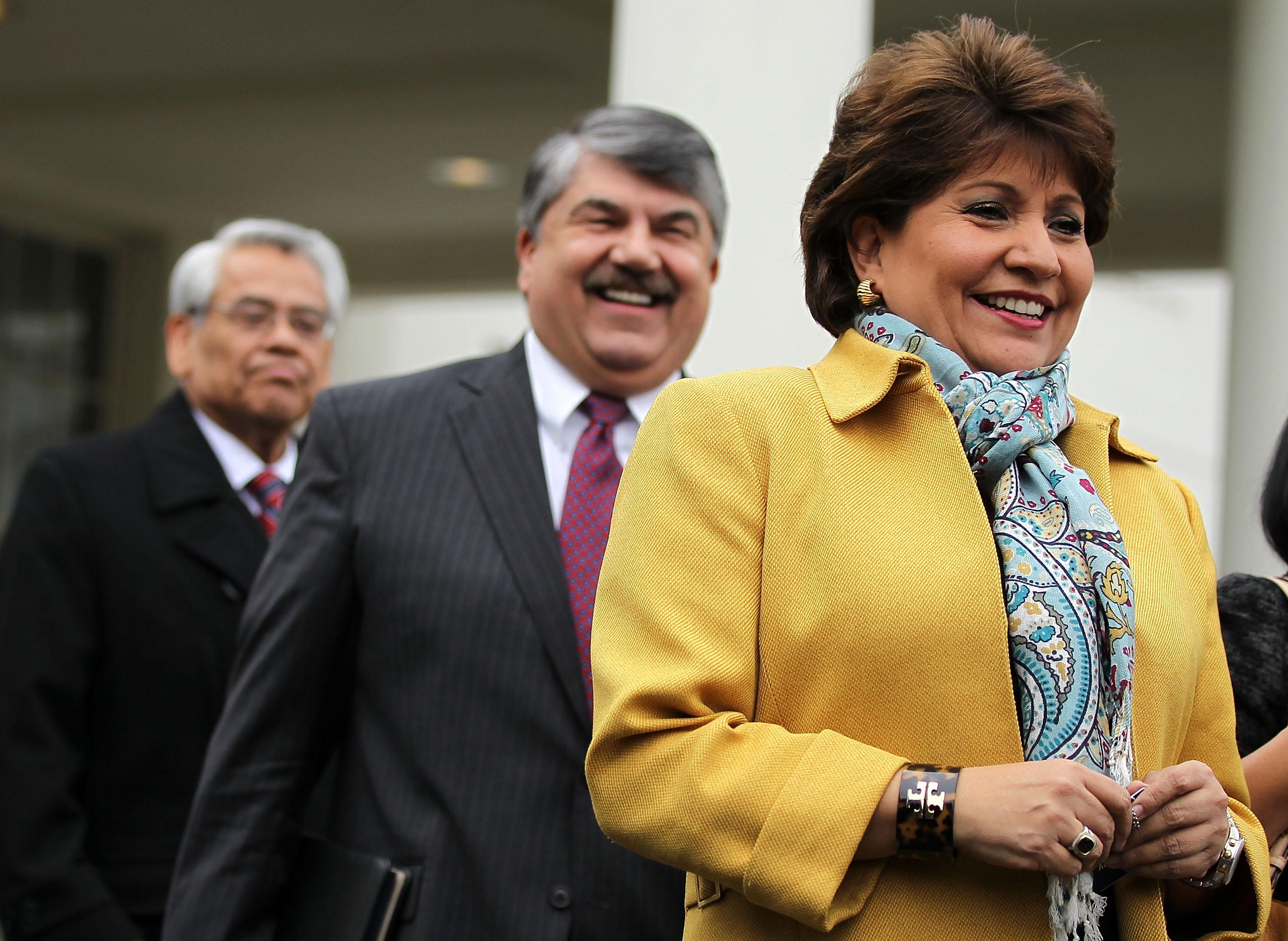Richard Yeselson, a veteran union researcher, has a fascinating essay in Democracy on the future of American private sector labor unions. He starts with the way the Taft-Hartley Act put private sector labor on a road to decline starting in the 1950s, posits that there’s no politically realistic path to large-scale labor law reform, and says that the “comprehensive campaigns” like Justice for Janitors aimed at organizing new classes of workers haven’t really worked. He holds to the view that labor organizing in practice happens in bottom-up spurts and militant action leads to labor law reform rather than stemming from it. The best strategy is essentially to hunker down and hope (or, in Yeselson’s case, confidently predict) that the time will come when restless workers start demanding unionization.
It’s a fantastic essay and you should read it. But I have the following objections:
One is that I don’t think it’s really all that helpful to neglect public sector unions from the picture. Right now the public sector provides the majority of U.S. union members and dominates the AFL-CIO. What’s more, a lot of “private” union membership in practice depends on public policy linkages as with the Davis-Bacon rules that bolster building trade unions or the fact that aviation unions are treated under a separate set of rules from the NLRB process. Yeselson himself cites “several hospital chains,” “convention-sized hotels in major cities,” and “the telecom companies” as among the private bulwarks he wants to defend but these are all industries with a high degree of government dependency. There isn’t a ton of sense in drawing a firm line of separation between these unions and public sector ones.
A second is that I think Yeselson underrates the value of the comprehensive campaigns in terms of larger coalition politics. John Sweeney and Andy Stern succeeded, for lack of a better word, in making being pro-union cool again. I am regularly castigated on the Internet for being insufficiently enthusiastic about U.S. labor unions, and I don’t think that would be happening if not for Justice for Janitors and other related undertakings. If private sector labor presented itself self-consciously as a narrow interest group engaged in special pleading on behalf of a handful of workers, it would bleed support among the large number of loyal Democratic Party voters who are not themselves union members. Here, again, the public sector is relevant. If labor on the whole stopped presenting itself as actively engaged in efforts to represent the interests of all American workers broadly construed, then the political and economic posture of public sector unions would collapse. Teachers unions are perhaps an exception here as many liberals have a strong affiliation on the merits with teachers’ desire for high levels of compensation and low levels of test-based assessment, but unions of bus drivers and prison guards rely on the existence of a broader pro-union ideology that Yeselson’s Fortress Unionism would erode.
Now to be fair, I don’t necessarily have a “better idea.” I think a plausible story about the world is that we’re basically facing a “house divided” kind of situation. The Finland/France equilibrium, where basically all large firms have a collective bargaining procedure, is a stable equilibrium and so is the one America is heading toward, where basically none do. Which is to say I think Yeselson is right about the unsustainability and ultimate failure of comprehensive campaigns while also underrating their value. Or conversely, I am more of a believer than Yeselson is changing labor law to make it more practical to organize new workplaces but I don’t disagree with his basic pessimism about the likeliness of this happening.
